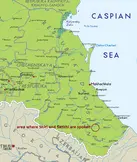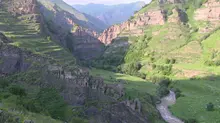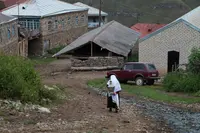Documenting Dargi languages in Daghestan - Shiri and Sanzhi

In this project, three linguists (Diana Forker, Rasul Mutalov and Oleg Belvaev) and an ethnographer (Iwona Kaliszewska) will document and analyze Shiri and Sanzhi and the culture of the Shiri and Sanzhi people. Shiri and Sanzhi belong to two different Dargi languages (Nakh-Daghestanian), spoken in the central part of Daghestan in the Caucasus (Russia). The languages are heavily endangered. We estimate that there are only about 200 Shiri families and about 100 Sanzhi families left.

The project aims at a detailed and in-depth documentation of Shiri and Sanzhi through the collection of texts from a wide range of genres. These texts will be made available to the public via the DoBeS archive (http://www.mpi.nl/DOBES/).
In the linguistic documentation and analysis of Shiri and Sanzhi we will pay special attention to those features that are unusual for the Nakh-Daghestanian language family and of broader typological interest. Two of these features are person agreement, which is based on the person hierarchy and not determined by grammatical roles, and extraordinarily rich TAM and evidentiality paradigms.

In our project we will collaborate with Russian colleagues (e.g. Nina Sumbatova) and colleagues from the University of Jena (Kevin Tuite, Florian Mühlfried). But our main cooperation partners will be Daghestanian researchers, students and the Shiri and Sanzhi communities.

The project ist funded by the DoBeS program of the VW foundation (http://www.volkswagenstiftung.de/service/aktuelles/article/129/chancen-fuer.html?no_cache=1&cHash=fefa1ac99f). It started in summer 2012 and runs for three years.
For further information please visit our project page: http://www.kaukaz.net/cgi-bin/blosxom.cgi/english/dargwa
